Bon Jovi: These Days (1995) Review
“We ready?”, asks drummer Tico Torres.
“Just about…”, replies Jon Bon Jovi.
This muffled interaction kicks off sixth studio album, These Days, and it does a pretty good job of preparing us for what’s in store.
For the bombast which adorned their 1980s output, which was gradually dialled down on Keep The Faith, has now been totally ironed out of the mix in favour of an incredibly stripped back, raw, almost rehearsal-like production.
(Indeed, the album was originally set to be titled Strip in reference to this.)
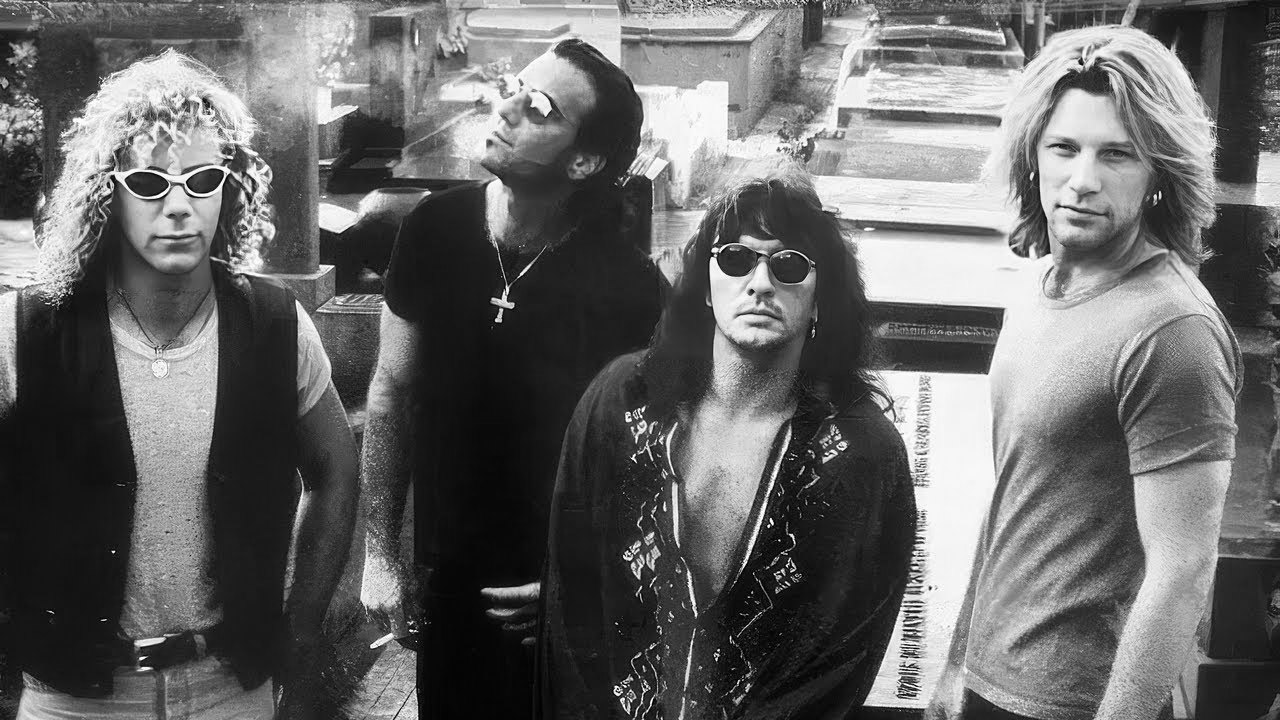
Still Kings Of The Mountain
New Jersey’s finest exports have quite literally seen it all, and they’re keen to tell us about it.
Seriously, they reminisce so frequently it could’ve been called Those Days!
However, there’s no question that we can forgive Jon Bon Jovi for “feeling old before his time” when we consider the fact that his battle-weary squad have already survive the death of hair metal, the short-lived seventies rock revival, the thrash uprising, and the grunge wave…
… which is enough to wear anyone out, right?!
So let’s not sugarcoat this:
The fact that they’re still here and still creating music on thier own terms, when nearly all of their contemporaries are but a distant memory, is a fantastic achievement.

A Brand New Perspective
The good news is that these persistently rocky waters have gifted the frontman a reflective tone befitting somebody far more advanced in years.
You wouldn’t believe it from listening to him, but Jon Bon Jovi is still just 32.
Regardless, his urge to reminisce about days gone by isn’t really a bad thing when the bulk of the material is this strong.
Case in point; These Days.
Forcing his new lyrical style onto the band’s well-established anthemic template (e.g. Livin’ On A Prayer and Keep The Faith) gives us something which feels altogether more grounded than we were expecting.
It’s a heartfelt, somewhat cynical, and remarkably catchy title track.
These Days tells a story of dashed hopes and broken dreams, which is underscored by Jon Bon Jovi’s belief that real success lies not in materialistic riches, but in the feeling of self-worth which is earned by powering through life’s day-to-day struggles.
That message is made even more powerful by the fact that Bon Jovi are essentially living it, having stayed true to themselves while everyone around them seemed to be losing their minds, selling their souls, or being deleted by a scene which no longer needed them.
For they are the last men standing from a bygone era of rock, and they’re well aware of it.
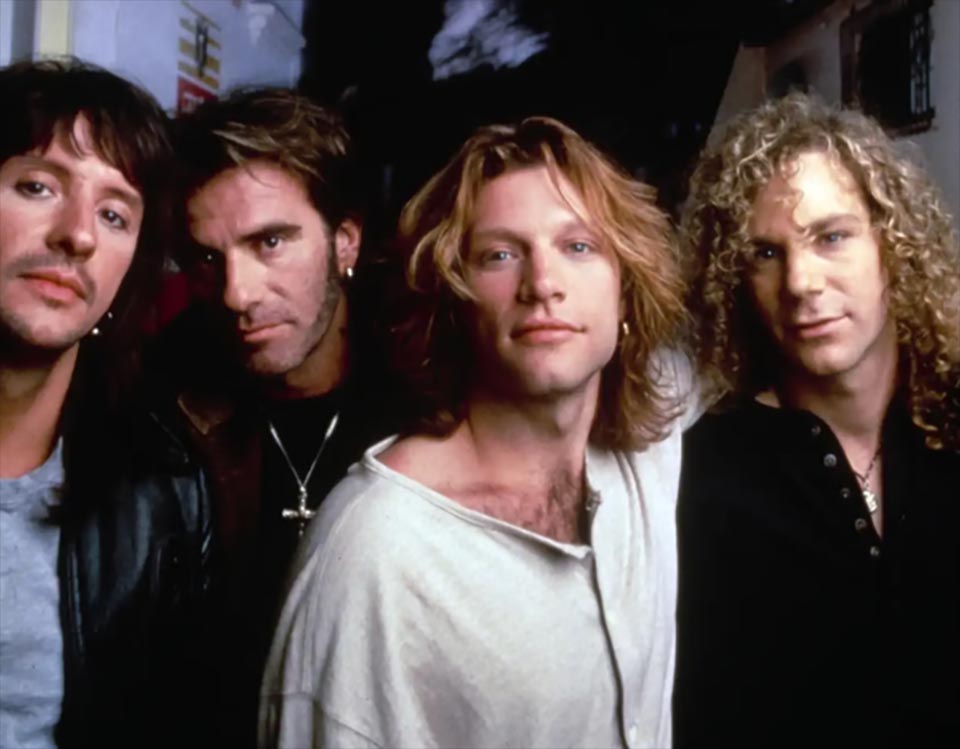
"No one wants to be themselves these days,
There ain't nobdy left but us these days."
THESE DAYS
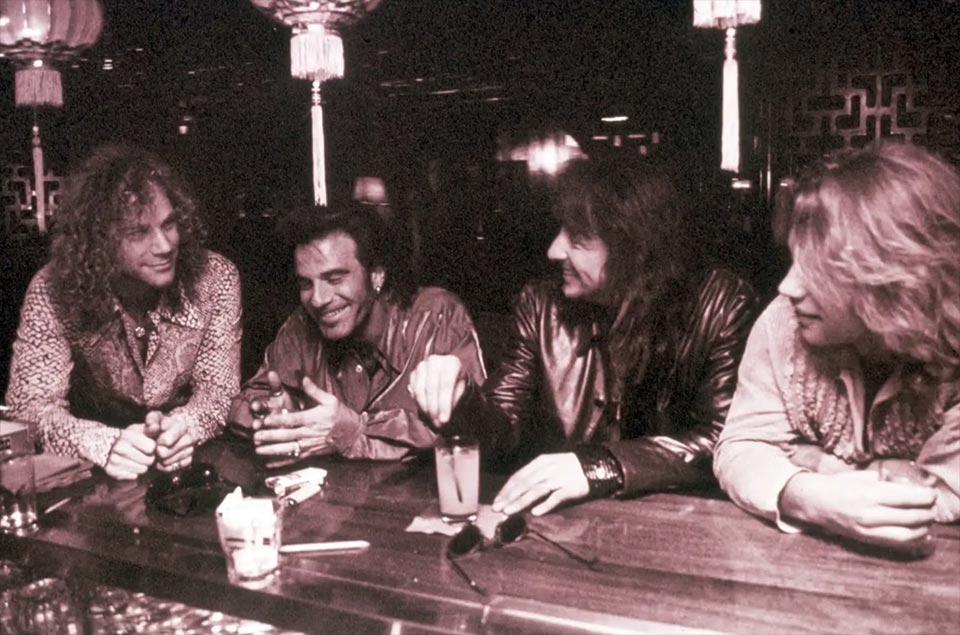
Use Your Disillusion
Special praise must be reserved for album opener Hey God.
It’s locked and loaded with all of the anger, resentment, and disenchantment you’d expect from a band who have seen so much upheaval in such a short space of time.
A face-melting guitar riff from axeman Richie Sambora helps it come tearing out of the gates, before Jon Bon Jovi delivers a thunderous vocal performance which carries a level of audible turbulence that we’ve only heard from him once before (the rollicking Fear from Keep The Faith).
Quite frankly, it’s one of the best tracks they’ve ever written.
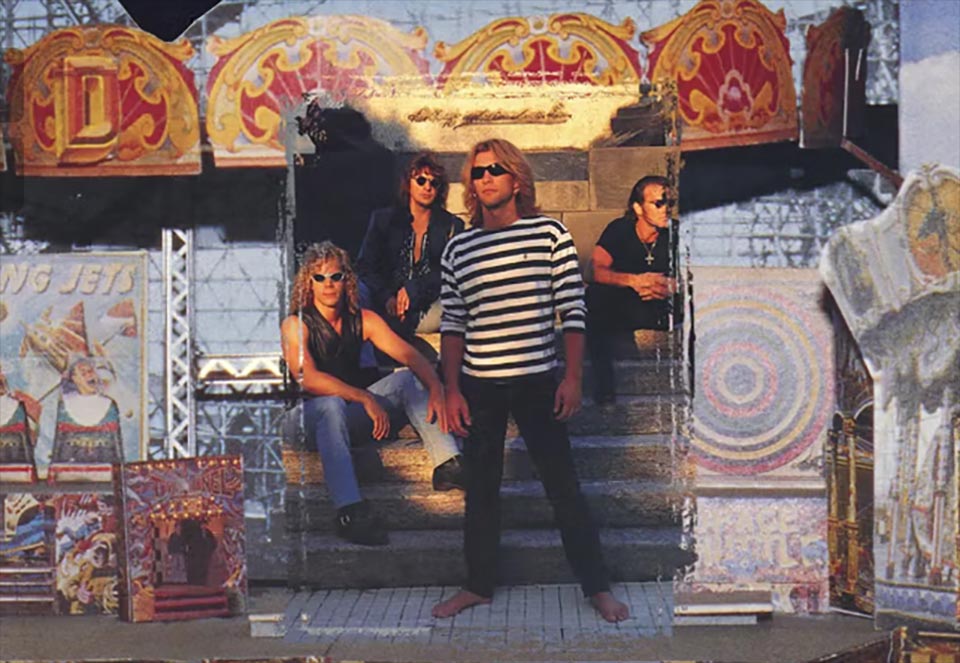
"I get down on my knees,
I'm gonna try this thing your way,
I seen a dyin' man too proud to beg,
Spit on his own grave."
HEY GOD

Times Of Change
When founding member Alec John Such was unceremoniously fired from the band in early 1994, it forced Bon Jovi into their first ever line-up change.
Or so it seemed…
Fans feared that the loss of the charistmatic bassist would spell disaster, but were shocked to hear that Such was little more than a “live performer”.
It turns out his replacement, Hugh McDonald, has been an active member of the group since their earliest days, and has played bass on every record so far – including hits like Runaway and Keep The Faith!
So it’s not so much a change, but rather the first time McDonald has received credit.
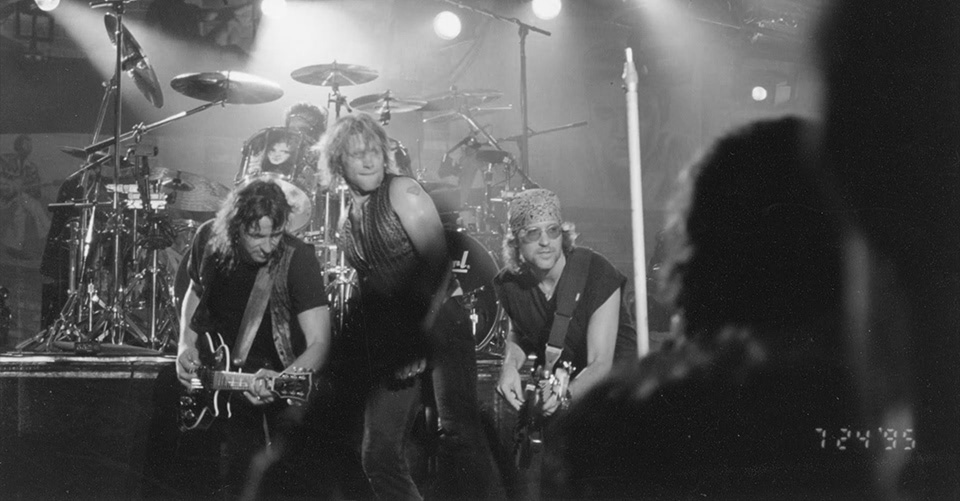
“I loved Alec… we all loved Alec.
But as a unit we were growing as musicians, and his inability to keep up was obvious.
We tried all we could to help him, because he’s our dear friend, but the lifestyle choices he was making at the time had put him in a position where he could no longer do the job.
At first he could still perform onstage but he couldn’t play on the records.
I figured that’s fine, we can deal with that.
But then it got to a point where he could no longer play onstage or on the records, and that’s when we had real problems.”
– Jon Bon Jovi
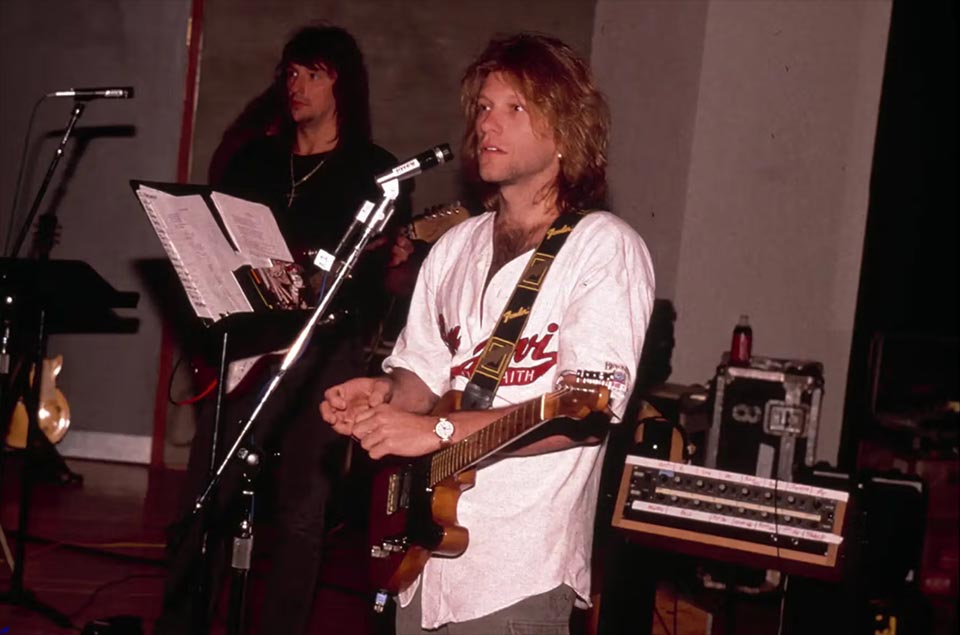
“The greatest hits collection we put out last year did so well, it gave us such a great feeling going into this one.
In my opinion, These Days is probably the best Bon Jovi record to date.
The writing is superior, the lyrics are concise and mature, I hope everybody is going to like it!”
– Richie Sambora

Is “Dated” A Bad Thing?
Peter Collins’ minimalistic production is a focal point of the album.
It’s totally understandable that the band felt they needed to go this route in order to remain relevant in the mid-90s and to further their sound, but it’s an experiment which doesn’t always work.
For example, one huge plus point is that Collins’ lack of studio tinkering means that These Days still sounds every bit as fresh today – some 30 years after release – as it did back in 1995.
Hallelujah!
However, one can’t help but feel that the same barebones production inadvertantly robs a few songs of their true power.
For instance, the fabulous This Ain’t A Love Song (spoiler; it is) and the great-but-not-quite-as-good Lie To Me would’ve been sure-fire contenders for the top of the charts had they been lucky enough to receive the kind of studio heft which was synonymous with Bon Jovi by this stage in their career.

A Game Of Two Halves
Unfortunately, all of These Days’ best ideas are packed into the first half of the record.
Because aside from a terrific vocal performance on Something To Believe In, there’s not a lot to write home about once you cross into the deeper waters here.
Was this problem fixable?
Sure.
But perhaps the most frustrating thing about These Days is that the band actually brought this upon themselves.
You see, had the production trio (Peter Collins, Jon Bon Jovi, and Richie Sambora) got their collective heads together and included the outstanding Someday I’ll Be Saturday Night and all-conquering mega-hit Always – both of which were written for this record – it would’ve significantly improved the overall flow of These Days.
Unfortunately they made the rather bizarre decision to include those tracks on a Greatest Hits compilation which was released just six months prior, essentially hamstringing the second half of this record.
In their place sit a smattering of laclustre ballads which don’t hit anywhere near as hard, including the New Jersey outtake Diamond Ring, (It’s Hard) Letting You Go, and the Aerosmith-esque ballad Heart’s Breaking Even, which fails to live up to it’s own potential thanks to a series of clunky key changes.
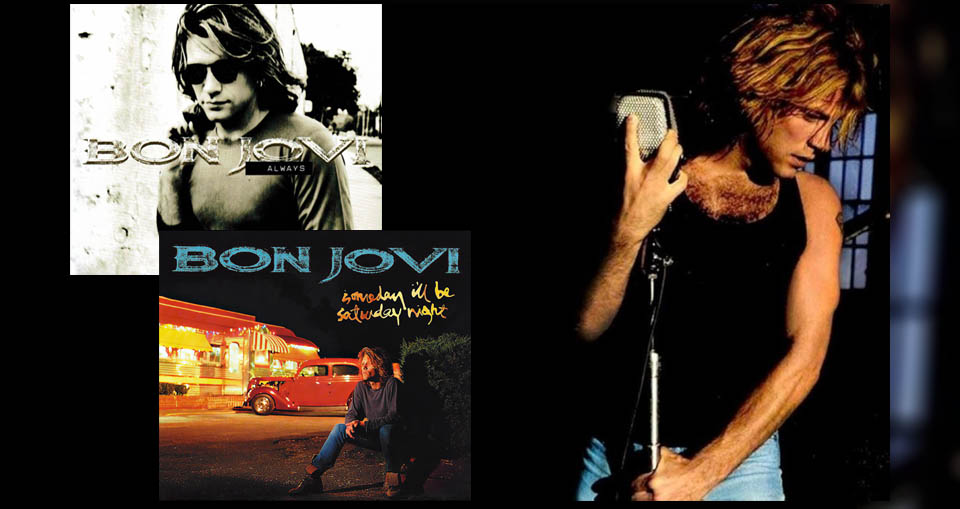
“This is our most introspective record so far.
We’re all for giving people hope, but man, sometimes life just hits you.
I remember looking out across Broadway and seeing a guy in an Armani suit just stepping over a sleeping homeless guy, and that image affected me, you know?
Like, what the fuck are we doing?
A couple of days later, Richie told me he’d cracked the window of his car at a red light and happened to make eye contact with a group of homeless people who seemed to be living under a bridge.
He had this unshakable feeling of guilt in that moment, unable to get it out of his head.
That’s basically where Hey God came from.”
– Jon Bon Jovi

Bon Jovi: These Days
Overall, Bon Jovi’s sixth studio album has enough quality to be remembered as a strong piece of work.
Perhaps more importantly, it’s the record which proved that no matter how volatile the 90s rock landscape became, there would always be space for the ever-dependable Bon Jovi.
The remarkable commercial success of These Days cemented their status as the biggest rock band in the world circa 1995.
It famously knocked Michael Jackson’s HIStory off the #1 spot while the band were on stage at Wembley Stadium, and eventually went on to sell just shy of five million units.
Upon completion of the extensive world tour – which included two sold out nights in London which they class as their proudest moments – Bon Jovi would decide to take a “short break” which eventually transformed into a lengthy five year hiatus.
But despite the fact that they would create a handful of classic singles during their post-2000 timeline (e.g. It’s My Life and Have A Nice Day), they would never truly be able to recapture the magic of this incredible four album run which started all those years ago with Slippery When Wet and finished with These Days.
“11” Re-worked Tracklist
“11” Re-worked Tracklist
Maybe it’s the autism in me, but I’ve always been skilled at shuffling album playlists to create a superior listening experience.
Hey, what can I say, Superman got laser eyes and I got this!
If the album had used our playlist it would’ve been upgraded from 7/11 to 8/11, so listen to Bon Jovi: These Days (1995) this way for maximum effectiveness:
- These Days (6:27) ★
- Something For The Pain (4:48)
- Hey God (6:10) ★
- Damned (4:33)
- Why Aren’t You Dead? (3:31) #
- Someday I’ll Be Saturday Night (4:39) ^
- Always (5:53) ^
- Good Guys Don’t Always Wear White (4:30) #
- Taking it Back (4:18) #
- Lie To Me (5:34)
- Something To Believe In (5:25) ★
- This Ain’t A Love Song (5:06)
- If That’s What It Takes (5:17)
- As My Guitar Lies Bleeding In My Arms (5:41)
- Flesh And Bone (5:01) #
★ Standout track
^ Featured on Crossroads: The Greatest Hits Collection (1994)
# B-side eventually released on 100 Million Fans Can’t Be Wrong (2004)
In summary:
These Days shows why Bon Jovi were one of the few bands to escape the grunge wave relatively unscathed. It’s an inconsistent listen, but the highlights rank amongst the best work of their storied career.
These Days receives 7/11.
★ ★ ★ ★ ★ ★ ★
Related Posts
 Reviews, Bon Jovi
Reviews, Bon Jovi Bon Jovi return with a solid yet unremarkable follow-up to Slippery When Wet.
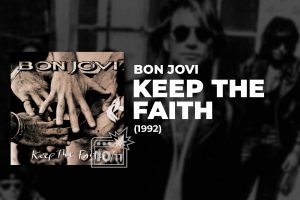 Reviews, Bon Jovi
Reviews, Bon Jovi Bon Jovi rock into the 90s with one of their very best albums.
 Reviews, Bon Jovi
Reviews, Bon Jovi A solid if unspectacular return from Jon Bon Jovi and co.
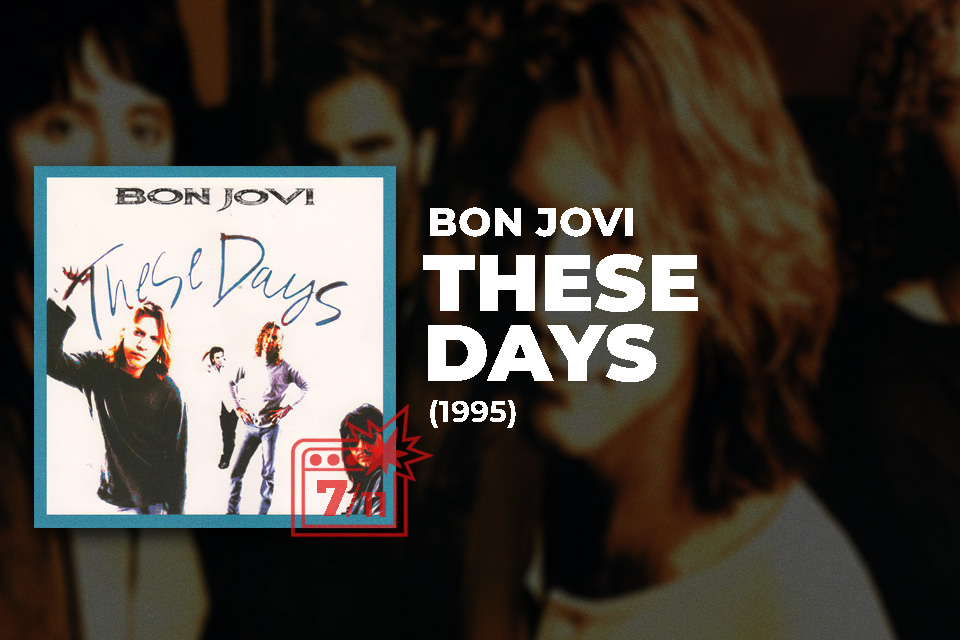
Leave a Reply to "These Go To 11" | Bon Jovi: Lost Highway (2007) Review Cancel reply